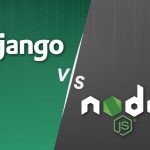List of Top 10 Django Packages and Libraries for Web App Development

Django, a powerhouse in web development, has redefined how developers construct robust and scalable web applications. Its inception in the early 2000s marked a turning point, introducing a framework with a pragmatic design, elegant syntax, and a comprehensive feature set. Today, when it comes to web development, developers first rivet their attention to Python and Django.
Adrian Holovaty and Simon Willison, the visionaries behind Django, developed it at the Lawrence Journal-World newspaper, and it swiftly transcended to become a cornerstone of modern web development.
Today, Django stands as a high-level Python web framework, championing rapid development and clean, pragmatic design. Developers harness its many features to build exceptional user experiences.
Yet, the true power of Django lies in its expansive ecosystem of packages and libraries, each offering specialized functionalities. These extensions breathe life into Django, enhancing its core capabilities and empowering developers to effortlessly tackle a myriad of tasks.
Grasping the significance of these packages and libraries is paramount for anyone venturing into Django web framework for application development. So, we take you through the top Django packages and libraries, discussing their unique capabilities and how they can propel your web development endeavors to new heights.
Top 10 Django Packages and Libraries To Take Your Web App Development To New Heights
Django’s extensive ecosystem of packages and libraries plays a pivotal role in enhancing functionalities and accelerating the app development process. Below, we explore the 10 most important Django packages and libraries that every good developer working on a Django project will implement to elevate your web app.
Django REST Framework
Django REST Framework (DRF) is a powerful and flexible toolkit for building web APIs. A third-party package, it is used for building web APIs that simplifies the process of creating REST interfaces. DRF is a powerful tool that can help developers build robust, secure web applications with minimal effort. It provides all the tools necessary for building quality APIs that can be used across multiple platforms. With its extensive library of features, it offers developers complete control over their projects from start to finish.
Here are some of the features of Django REST Framework:
- Serialization: DRF supports both ORM and non-ORM data sources, making serialization easy and flexible.
- Web browsable API: This is a huge usability win for developers, as it allows them to interact with the API in a web browser.
- Authentication policies: DRF includes packages for OAuth1a and OAuth2, making it easy to secure APIs.
- Customizable: DRF is customizable all the way down, and developers can use regular function-based views if they don’t need the more powerful features.
- Extensive documentation: DRF has extensive documentation and great community support.
- Used and trusted by internationally recognized companies: DRF is used and trusted by companies such as Mozilla, Red Hat, Heroku, and Eventbrite.
Django Tenants
Django Tenants is a package that enables Django-powered websites to have multiple tenants via PostgreSQL schemas. It is a vital feature for every Django project dealing with Software-as-a-Service (SaaS) websites, as it enables them to efficiently manage and serve diverse user bases. Through Tenants, developers can ensure seamless operation and scalability, which makes it an essential tool for any SaaS website catering to a wide range of users.
Here are some of the features of Django Tenants:
- Schema separation: It creates a schema-separated database for several tenants in a project. This means that each tenant has their own schema in the database, which is independent of other tenants’ schemas.
- Tenant-specific data: It allows developers to store tenant-specific data in the database. This means that each tenant can have their own data, which is not visible to other tenants.
- Tenant-specific URL routing: It helps route URLs based on the tenant. This means that each tenant can have their own subdomain, which is used to access their data.
Django Extensions
Django Extensions is a comprehensive package that can help simplify the process of creating websites and streamline work for developers. It is a popular choice among developers and has extensive documentation and community support. As a comprehensive toolset, it empowers developers with a range of utilities and commands, simplifying tasks and expediting the creation of robust, feature-rich websites.
Here are some of the features of Django Extensions:
- ORM extensions: Django Extensions includes several ORM extensions, such as ForeignKeyAutocompleteAdmin, ForeignKeyAutocompleteTabularInline, and ForeignKeyAutocompleteStackedInline. These extensions make it easier to work with the Django ORM.
- Form/serializer fields: Offers several form/serializer fields, such as AutoSlugField, CreationDateTimeField, and ModificationDateTimeField. These fields make it easier to work with forms and serializers in Django.
- Testing: For testing Django Extensions includes several utilities, such as TimeLoggingTestRunner and MemoryTestSuiteRunner. These utilities make it easier to write and run tests in Django.
- Cache: Django Extensions includes several cache utilities, such as CacheKey, CacheManager, and CachedAttribute. These utilities make it easier to work with caching in Django.
- User management: Django Extensions includes several user management utilities, such as EmailUser and EmailUserAdmin. These utilities make it easier to work with user management in Django.
- API integration: Django Extensions includes several API integration utilities, such as GoogleMapsField and GoogleMapsPointField. These utilities make it easier to work with API integration in Django.
- Data manipulation: Django Extensions includes several data manipulation utilities, such as OrderField and UUIDField. These utilities make it easier to work with data manipulation in Django.
Django Storages
Django Storages is a great tool for storing files in various cloud storage services, providing custom storage backends for Django. The versatility offered by the Storages empowers developers on Django project to efficiently store and retrieve data, whether it be images, documents, or multimedia content, in a manner that aligns with their specific project requirements. Offering flexibility, Django Storages proves to be an essential asset for creating dynamic web applications that demand robust and adaptable file storage solutions.
Here are some of the features of Django Storages:
- Custom storage backends: Django Storages provides several custom storage backends, such as S3Boto3Storage, AzureStorage, and GoogleCloudStorage. These backends make it easy to store files in various cloud storage services.
- Easy configuration: Django Storages is easy to configure, and developers can use pip to install it from PyPI. Each storage backend has its own unique settings that developers need to add to their settings.py file.
- Extensive documentation: Django Storages has extensive documentation that developers can use to determine what settings they need to add to their settings.py file. The documentation also includes information on how to contribute to the package on GitHub and how to submit bugs, issues, and feature requests.
Django Redis
Django Redis is a full-featured Redis cache and session backend for Django. Redis is an in-memory data structure store that can be used as a caching engine, and it can deliver data very quickly. By caching data after it has been processed and then serving it from the cache the next time it is requested, stress on the server can be relieved. Caching with Redis thus also helps eliminate processing on the server, which improves overall application performance. All you need to ensure is to have the best Django hosting servers.
Here are some of the features of Django Redis:
- Flexible serialization: Handles a large range of object types, and it can serialize data using JSON.
- Pluggable clients, parsers, and serializers: Pluggable clients, parsers, and serializers, which makes it highly configurable.
- Primary/secondary support: The default client in Django Redis supports primary/secondary support, which allows for more efficient failover handling.
- Supports infinite timeouts: Supports infinite timeouts, which means that cached data can be stored indefinitely.
- Facilities for raw access to Redis client/connection pool: Provides facilities for raw access to the Redis client/connection pool, which allows for more fine-grained control over the caching process.
Django Guardian
Django Guardian is a package that provides per-object permissions for Django. It allows developers to define custom permissions for each object in the database, which can be assigned to users or groups. Using Django Guardian can help improve the security of Django web applications by allowing developers to define custom permissions for each object in the database. So, only authorized users have access to sensitive data or a feature, which helps prevent accidental or intentional data leaks.
Here are some of the features of Django Guardian:
- Per-object permissions: Provides per-object permissions, which means that developers can define custom permissions for each object in the database.
- Integration with Django’s authentication backend: Integrates with Django’s authentication backend, which means that it can be used with Django’s built-in user and group models.
- Support for anonymous users: Provides and supports object-level permissions for anonymous users, which means that developers can define custom permissions for users who are not logged in.
- Custom user object permission model: Allows developers to define a custom user object permission model, which can be used to define custom permissions for users.
Also Read: Django security best practices
Django Channels
Django Channels is a package that extends the capabilities of the Django framework, allowing Python developers to build and deliver real-time web features for use cases like real-time chat and multiplayer collaboration. By extending Django to handle WebSockets and other protocols, Django Channels enables developers to build applications that require real-time interaction with the server. So, you need to choose the right server for Django apps. Channels also gives developers the choice to handle other connections in either a synchronous or asynchronous style, which can help improve application performance.
Here are some of the features of Django Channels:
- Support for WebSockets and other protocols: Django Channels extends Django to handle WebSockets and other protocols (like HTTP2) that require long-lived connections.
- Built on Asynchronous Server Gateway Interface (ASGI): Unlike the core Django framework, Channels isn’t underpinned by Web Server Gateway Interface (WSGI), instead, it’s built on a newer Python spec called ASGI.
- Synchronous and asynchronous style: Channels gives you the choice to handle other connections in either a synchronous or asynchronous style.
- Django integration layer: Comprises several packages, including the Django integration layer.
- HTTP and WebSocket termination server: Includes an HTTP and WebSocket termination server.
- Redis channel layer backend: Offers a Redis channel layer backend (optional).
Django Celery
Django Celery is a distributed task queue for Python that allows developers to offload time-intensive tasks from their Django application to a separate worker process or even a distributed task queue. Using Django Celery can help improve the performance of Django web applications by offloading time-intensive tasks to a separate worker process or even a distributed task queue. As a result, web apps can respond quickly to users while Celery completes expensive operations asynchronously in the background. By using Celery, developers can also schedule tasks at a specific time, which can be useful for tasks that need to be executed at a specific time.
Here are some of the features of Django Celery:
- Asynchronous task execution: Django Celery allows developers to execute time-intensive tasks asynchronously in the background, which can help improve the performance of their applications.
- Integration with Django: Django Celery integrates seamlessly with Django, allowing developers to use it with their existing Django application.
- Support for scheduling tasks: Django Celery supports scheduling tasks at a specific time, which can be useful for tasks that need to be executed at a specific time.
- Support for distributed task queues: Django Celery supports distributed task queues, which allows developers to distribute tasks across multiple worker nodes, improving overall performance.
Django Allauth
Django Allauth is a package that provides authentication and registration features for Django web applications. It is one of the most popular authentication modules due to its ability to handle both local and social logins. It provides a seamless and secure authentication and registration process for users. By supporting both local and social logins, Django Allauth can help simplify the login process for users, which can improve user engagement and retention. Also, as it provides customizable templates, it helps developers ensure that the authentication and registration pages help in offering an excellent user experience.
Here are some of the features of Django Allauth:
- Support for local and social logins: supports both local and social logins, which means that users can log in using their email and password or using their social media accounts.
- Integration with Django: Integrates seamlessly with Django, allowing developers to use it with their existing applications.
- Support for multiple OAuth/OAuth2 providers: Supports multiple OAuth/OAuth2 providers, including Google, Facebook, and GitHub.
- Customizable Templates: Provides customizable templates for login, registration, and password reset pages, which can be customized to match the look and feel of the web application.
Django Crispy Forms
Django Crispy Forms is a package that provides a simple and elegant way to render Django forms. It allows developers to create reusable layouts out of components, having full control of the rendered HTML without writing HTML in templates. Django Crispy Forms can help improve the user experience of Django web applications by providing a simple and elegant way to render Django forms. By supporting multiple frontend frameworks, developers can choose the framework that best suits their needs and customize the templates to match the look and feel of the web application. So, developers can handle advanced/custom form rendering and can create complex forms with ease.
Here are some of the features of Django Crispy Forms:
- Integration with Django: Integrates seamlessly with Django, allowing developers to use it with their existing applications.
- Support for multiple frontend frameworks: Supports several frontend frameworks, such as Twitter Bootstrap (versions 2, 3, and 4), tailwind, Bulma, and Foundation.
- Customizable templates: Provides customizable templates for form rendering, which can be customized to match the look and feel of the web application.
- Support for advanced/custom form rendering: Provides features to handle advanced/custom forms rendering, such as custom fields placement, crispy forms layout helpers, and custom crispy field.
Also Read: Django vs Node.js: Comparative Analysis
Conclusion
These are the foremost Django packages and libraries that developers from a known django development services company always employ to streamline the project development.
They enable developers to incorporate pre-existing code components, thus saving time and enhancing productivity, code uniformity, and code recycling.
With that said, if you’re an entrepreneur or a CEO of a medium to large-scale enterprise aiming to build Django applications, consider engaging proficient Python developers from Finoit.


